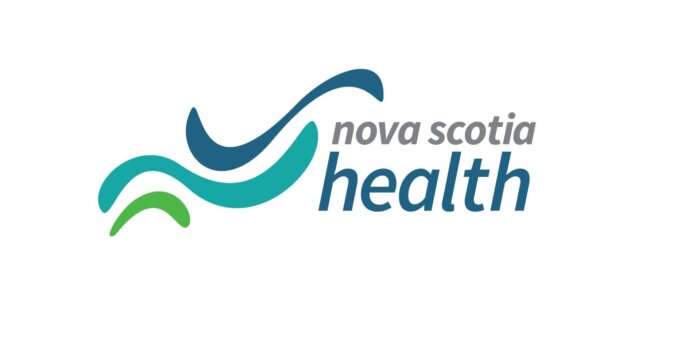HALIFAX: It’s clear that Canada’s health system, and health systems around the world, have longstanding issues that have been pushed to crisis situations due to the pandemic.
These include access to care, staffing shortages, overcrowded emergency rooms and inpatient services, backlog of surgeries, chronic disease management and complex care, and the modernization of health care.
This is an extraordinarily urgent issue, and Nova Scotia Health is collaborating with partners, like the Nova Scotia College of Nursing (NSCN), and multiple community programs and partners on the implementation of several initiatives to support and strengthen our strong nursing workforce.
This includes the recruitment of internationally educated nurses (IENs), those who live in the province, in Canada, and those who want to relocate here. They are an instrumental part of our workforce and will help ensure better health and health care for Nova Scotians.
Nova Scotia Health employs approximately 8,000 nurses – registered nurses, licensed practical nurses, and nurse practitioners – who work in every area of the health care system.
A key part of strengthening this high-functioning nursing workforce is the recruitment of IENs, who bring with them skills and qualifications that are in high demand within our health sector.
Nova Scotia’s International Community of Healthcare Workers Engagement Program (NICHE) has implemented a comprehensive program for the recruitment and retention of internationally educated and trained health professionals.
The broader vision for this comprehensive program is to grow into a provincial and national centre of excellence for training and supporting international professionals and see it as key strategy to enhance access to care especially in rural areas of the province.
As part of this program, Nova Scotia Health’s Learning Institute for Health Care Providers and the Interprofessional Practice and Learning team continue to support the internationally educated workforce.
This includes:
- Several education programs designed to meet the needs of learners across province, which are offered by the Nova Scotia Health Learning Institute for Health Care Providers. One of these programs is a well-established NSCN approved RN Bridging and Re-Entry program, which successfully graduates 90-120 learners per year. Designed to bridge the education required for successful licensure within Nova Scotia, this program involves virtual learning, skills, simulation, and a clinical component designed to meet NSCN requirements.
- A new pilot program in collaboration with NSCN, to be launched in the fall, which will provide IENs with a streamlined process to access RN Bridging education programs. This pilot program maintains the rigor of the current program, but in a more condensed time frame.
- An orientation to the Canadian health care system, which will be available this fall through the Nova Scotia Health Learning Institute for Health Care Providers. This online 8-week program is designed to introduce internationally educated health care professionals to the Canadian health care system.
- A mentorship program, offered by the Nova Scotia Health Learning Institute for Health Care Providers and targeted towards internationally educated nurses’ post-graduation, which will facilitate socialization, and integration into Nova Scotia’s health care system.
- The recruitment of retired nurses to support IEN’s as they transition into our health care system.
“Nova Scotia Health is a leader in understanding and contributing to the evidence locally, nationally, and internationally on initiatives that support and strengthen a high functioning nursing workforce who provide quality care for patients through their skills and expertise,” says Dr. Gail Tomblin Murphy, Vice President, Research, Innovation and Discovery and Chief Nurse Executive at Nova Scotia Health. “We are pleased to be partnering with the Nova Scotia College of Nursing to help provide the best possible care for Nova Scotians.”
NSCN has registered and licensed 212 IENs so far this year, as compared to 152 for all of 2021. For nearly half of these nurses, this was their first time being licensed in Canada. There are 185 applicants still in the registration and licensing process. NSCN continues to see growth in the number of IEN applicants and the continued review and changes to the registration and licensure process will help reduce the time it takes qualified IENs to receive a nursing license and positively contribute to our health care system.
“For me, joining the bridging program was an exceptional and enjoyable experience,” says Ravi AL-Qadi, a participant of the RN Bridging/Ren-Entry program. “The staff were professional, it was a friendly environment, and the content was very informative. This is the bridge to achieving my goal, which is joining the catheterization lab team.”
Quick facts:
- Most common countries participating in the RN Bridging/Re-Entry program include: Armenia; Australia; China; Ghana; Greece; India; Iran; Israel; Jordan; Kenya; Nepal; Nigeria; Philippines; Russia; Sweden; United Kingdom; Ukraine; the United States; and Zimbabwe
- Number of graduates from RN Bridging/Re-Entry program:
- January 2019 (35 grads)
- September 2019 (56 grads)
- January 2020 (50 grads)
- January 2021 (44 grads)
- September 2021 (33 enrolled in course progress)
- January 2022 (17 enrolled in course)
Additional information:
Nova Scotia Health Learning Institute for Health Care Providers: https://learninginstitute.nshealth.ca
Support for Ukraine: https://www.nshealth.ca/ukraine





















